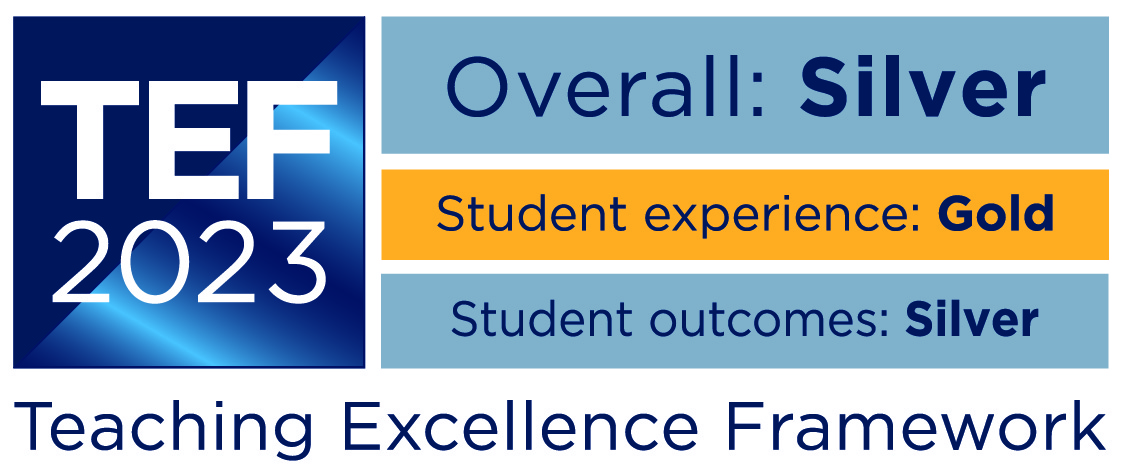This website uses cookies so that we can provide you with the best user experience possible. Cookie information is stored in your browser and performs functions such as recognising you when you return to our website and helping our team to understand which sections of the website you find most interesting and useful. For full details on the cookies used on our website, please visit our Cookies Policy page.
Graduate Interview with Em Marshall, First-Class (BA Hons) in Game Art, 2024. Winner of the Grads in Games Search for a Star Character Art Category, 2024.
Futureworks is the UK’s foremost higher education provider for people seeking a career in the creative industries. Our continuing series of graduate interviews focus on our BA (Hons) Game Art degree and why having an open mind and discipline are two key traits that will help you achieve success on the course.
Em Marshall graduated from Futureworks with a First-Class BA Honours Degree in Game Art in 2024. Soon after graduation, Em swiftly landed a job at K9 Digital as a Junior Character Artist, and we caught up with her after a day of working in her new role.
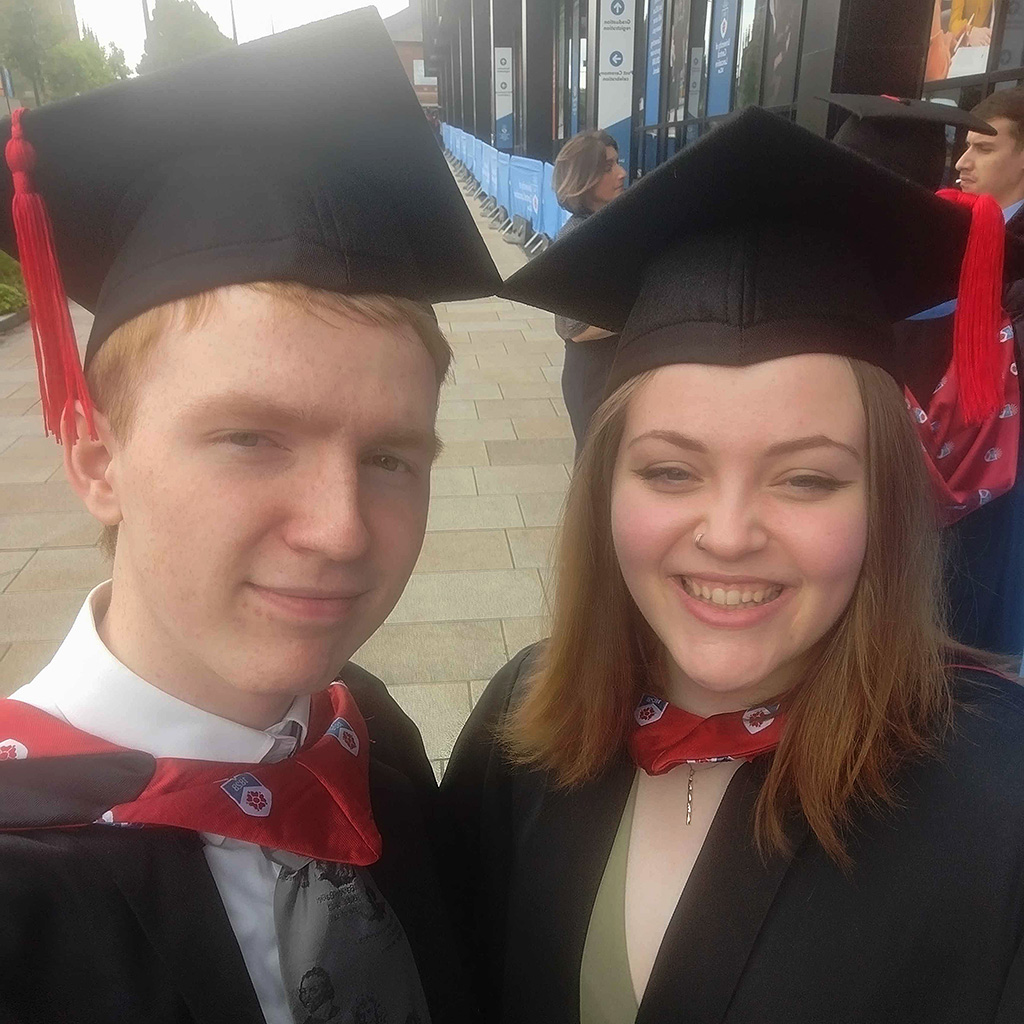
How did you get the job at K9 Digital, Em?
“I was on the ball with it. I didn’t want to finish Futureworks and then stop because it’s harder to get back into it, so I just started applying to places. K9 Digital had a job open, and I applied. They only had the job open for 3 days before they had to close applications; apparently, over 700 people applied.”
“I didn’t expect to get a job straight out of uni; it’s very normal to not get a job straight out of uni; it’s a mixture of luck and hard work. There’ll be a lot of hard-working graduates out there that have not got a job yet, so I’m fortunate in that respect.”
Casting your mind back, why did you choose Futureworks to study Game Art?
“I’ve loved art since I was little, and I knew I wanted to do something artistic as a career, but I didn’t know what shape that would take. At GCSE level, I was thinking of Graphic Design or Product Design. At A-Level, I took Fine Art, and at one point, I was thinking of studying fine art at university. I didn’t know that a career in games or game art was feasible. Thinking back, I don’t know how I thought that games got made; it just didn’t occur to me that game art was something I could do.”
“I visited a UCAS event in Manchester city centre, and Futureworks were there. I saw all the graphics tablets, the equipment, and students’ work. I spent more time there than anywhere else chatting with students and tutors, and I didn’t realise it was an educational path you could take. I thought you had to do something more traditional at uni. I never realised that there were courses that were so specialised.”
Did you play computer games before you started your Game Art degree?
“Absolutely, ever since I was little! My first console was a PS2. I played many of the Tomb Raider games, then moved up to an Xbox and eventually bought a PC. I love playing Elden Ring and any of the Dark Souls Franchise. It’s quite a difficult game genre, very dark fantasy, an open-world game. It’s very good.”
What skills did you learn from the Game Art course?
“Ooh, gosh, too many to count. Starting the course, I was horribly perfectionist; I was so precious about my work and doing it right. It would take me ages to get it right, and within a few weeks, that was knocked out of me. You’re taught to not be precious about your work. There’s a motivational quote that resonated with me, ‘If you’re too precious about your art, then you’ve not made enough art.’ I thought that was great, and I always remind myself, when I’m getting stuck on anything, that sometimes it’s better to start again, not delete, and you can compare and see how far you’ve come, and that’s important.”
“You have to be more open to constructive criticism and understand that people aren’t trying to put you down; they’re trying to help and want you to succeed. They want you to become a better artist and tutors giving you feedback is not a personal attack. That’s something you really have to learn, especially when you get into the industry because you’re going to have multiple, different eyes on your work every single day; it’s not going to be you, on your own, doing your own thing. That’s not how it works.”
“Finally, prepare to be open-minded. I was expecting to create 2D drawings on the course, mainly character designs. The course has 3D modules, and I had never had any experience with 3D before; it wasn’t the kind of software I’d had available to me. Be open to trying 3D and not caring if it doesn’t go so well and persevere with it. Learning 3D has led me to my current career, so be prepared to get out of your comfort zone and be open to trying something new. Those are my top three.”
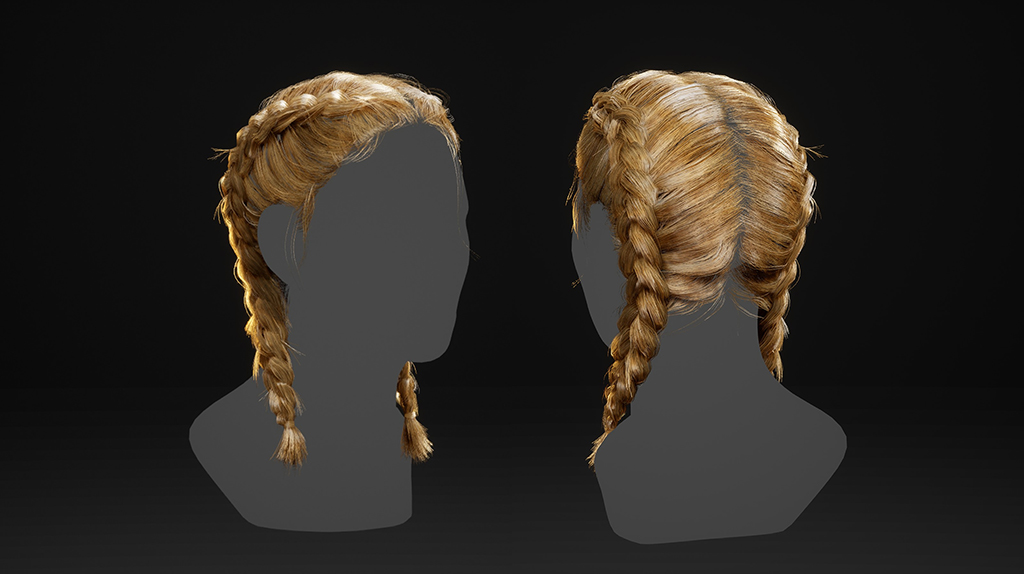
What software did you use for the 3D modelling?
“Maya, which is an Autodesk programme. ZBrush, which is digital sculpting, and Photoshop. Also, I used Adobe Substance Painter to add texture, Unreal Engine, which is the game engine we’re taught how to use at Futureworks, and a couple of other specialist software programmes that I taught myself.”
What did you enjoy the most about the course?
“Being able to be in a class with like-minded people is great. You come from school where there are so many different subjects and so many different people. That does narrow as you get into A-Level, but by the time you get to Futureworks, everyone on your course is interested in the same thing that you’re doing and because it’s game art, people are into video games, and that’s something that helped bond us as a group.”
“Also, it was only a small class, so we got to know each other very well, and what I liked about the course is that it taught such a vast array of skills that everyone graduated with different specialisms. For example, I was the only character artist, then we had environment artists, 2D concept artists, storyboard artists, and people specialising in props and materials; everyone was unique. For such a small class, we all graduated with a broad set of skills and something different to offer, which was pleasing.”
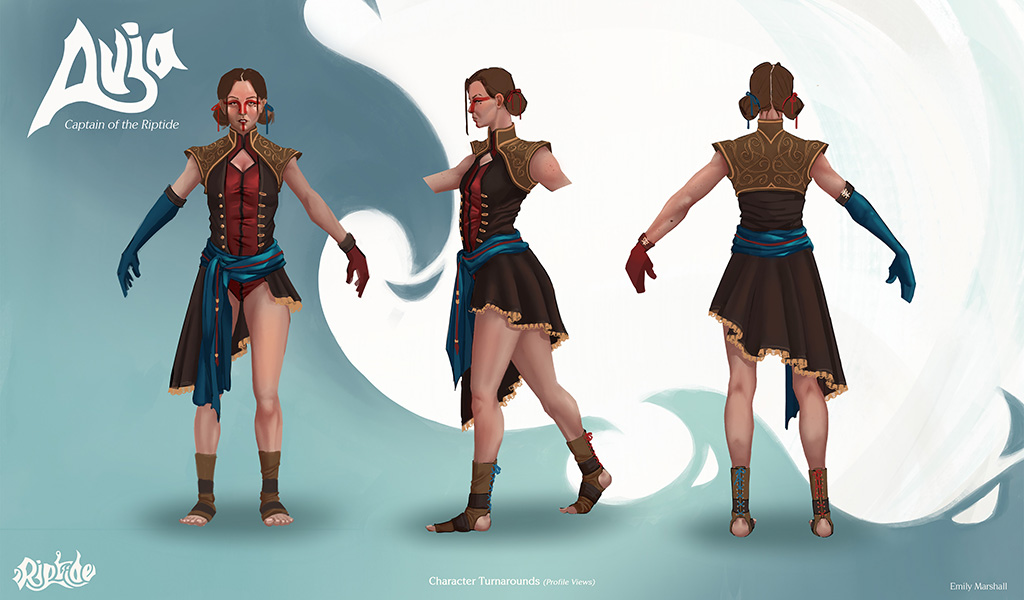
You’ve already touched on the support you received from tutors, but how did you get on with them during the course?
“The tutors are so in tune with what each student needs individually; they’re not just giving broad advice to everyone. You get a lot of time for feedback and one-on-ones. They really get to know you as a person, how you work, how your mind works, and what interests you. They’re really invested, and because of that, you’re really supported; you’re not just a person in a sea of people. You get to put a piece of you into your work, meaning everyone on the course comes out with something unique, and the tutors really encourage that.”
Was their industry expertise vital to your success on the course?
“Absolutely! As well as the main tutors on the course, who had vast knowledge of the games industry, we also had tutors who were active freelancers working in the industry at the time as well. Because they’re working in it, they knew the climate, and together, they had a great depth of knowledge.
When you started your new job at K9 Digital, did you feel prepared?
“My gosh, yeah, definitely. I graduated and thought, ‘I think I’m prepared,’ but now that I’m in a job, I know I was definitely prepared! It’s hard to know you are until you are in it. Also, what I’d learnt at Futureworks on how to use the software was critical, and what you need to realise is that the skills you gained from using the different programmes can be transferred to other software platforms. For example, what we learnt in Maya can easily be transferred to Blender; it’s just the interface that’s different, but the principles of the software are the same. Given a couple of days and some additional independent learning, you’ll be alright with it.”
Do you have any highlights from your time at Futureworks that stand out to you?
“Erm, I did a competition, that was very good. Definitely a highlight.”
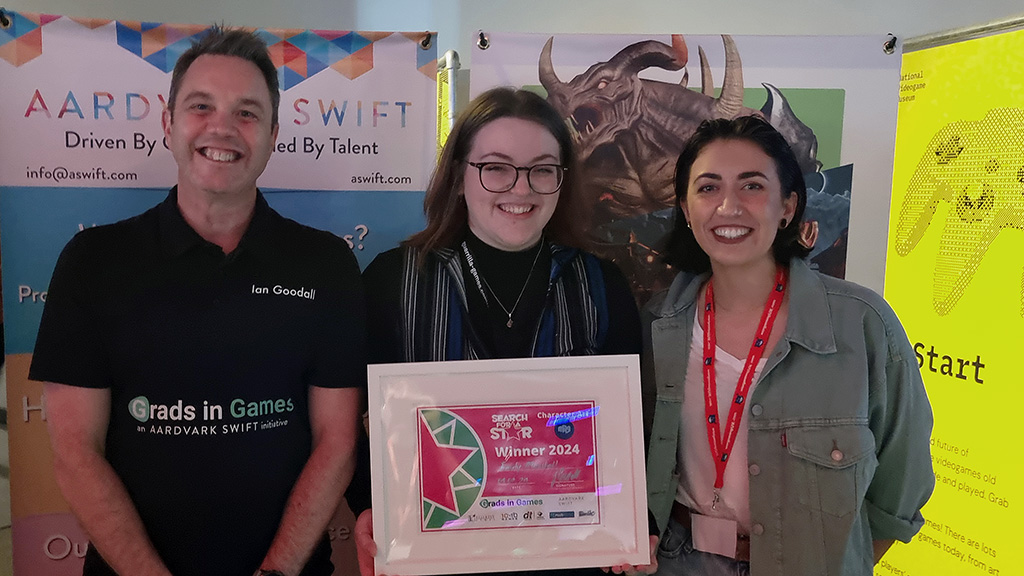
You’re being modest
“Well, it wasn’t part of the course; it was something that I did that was extra-curricular but supported by my tutors. I entered the Grads in Games Search for a Star Awards for final-year students. I didn’t think I would get anywhere, but I thought it would be good to enter a practice piece for my honours project. Over Christmas, I did it in a month, so it was a bit rushed, but I won the Character Art Category!”
“I’d encourage anyone doing a course like Game Art to enter. There are loads of categories, such as animation, environment art, game design, programming, and VFX. A good friend and classmate of mine, Joseph Stanley, along with second-year VFX student, Evan Goddard were finalists for the VFX category, and Evan won the Rising Star Award! So, there’s lots to choose from.”
“Also, you get to network as well. My LinkedIn profile quadrupled overnight, and I made loads of industry connections after that. I’m not a huge social media fan, but networking is essential to get set up before you graduate, especially LinkedIn; it really helped, and when I went to K9 for the job interview, they already knew about me, which was incredible!”
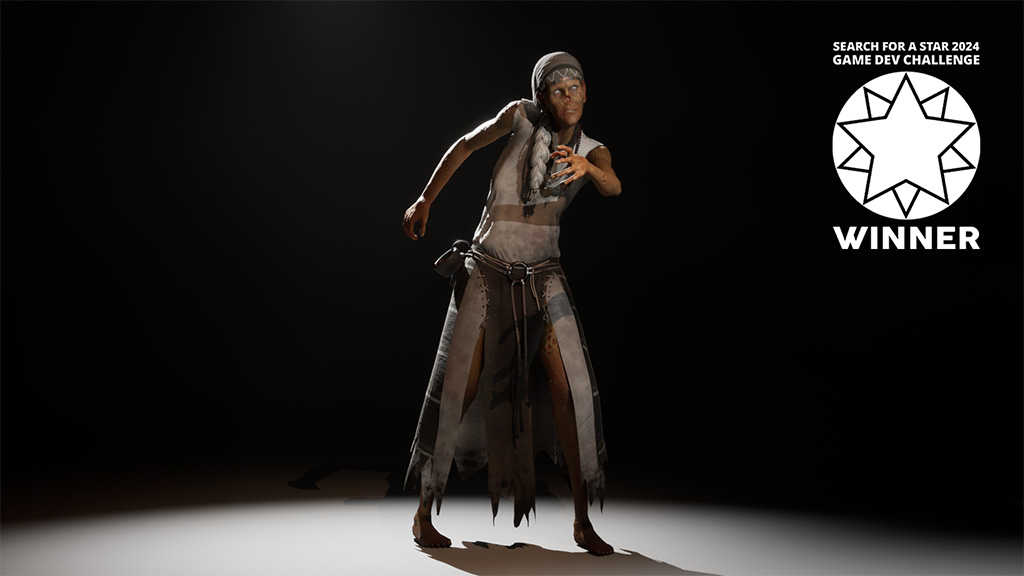
What would you say to encourage someone to study Game Art at Futureworks?
“What you have to consider with courses like Game Art is that you’re converting your hobby into your full-time education and, hopefully, a career. It can be very daunting, it’s a big decision, and you need to ensure it’s right for you, that you absolutely love what you do, and you can get up and do it every day.”
“If you’re determined that you want to get a career out of Game Art then Futureworks will help you toward that and give you the tools and skills necessary to succeed, but a lot of it is your own hard work. There is no magic uni that will give you everything you want. There will always be an aspect of yourself and hard work. It is truly what you make of it, but in terms of Futureworks, they take Game Art very seriously and will give you one of the best chances that you can have.”
“Discipline is also key, and you need to learn it. Early on, my tutors told me that art is a craft that needs constant practice, and you must work at it. Discipline is key. If you don’t learn that you won’t be able to do well, it gets tough; if you learn discipline early on, you’ll power through and get to the other side.”
“To sum it up, it’s a lot of hard work, but it is absolutely worth it! If I were to go back in time and tell myself, three years ago, how things would turn out, I would not believe it. I’ve got so much out of the course, including a career!”
You can follow Em on LinkedIn and Instagram, view her portfolio on Artstation and contact her via email: [email protected]
If Em has inspired you to pursue a career in Game Art then book on to a Futureworks Open Day and meet the tutors who inspired and helped her achieve a career in the Games Industry.
At the Open Day you’ll receive a tour of our facilities, get hands-on with equipment, watch software demos, view student work and learn more about our BA (Hons) in Game Art, including the course modules and how to apply. You’ll also have a chance to meet our students, hear what they have to say and discover why Futureworks is the UK’s foremost provider of creative degree courses for individuals seeking a worthwhile and rewarding career in the Games Industry.
We’re excited and looking forward to meeting you!
Read more about our School of Art & Design on our website and view more Game Art student work in our gallery.
